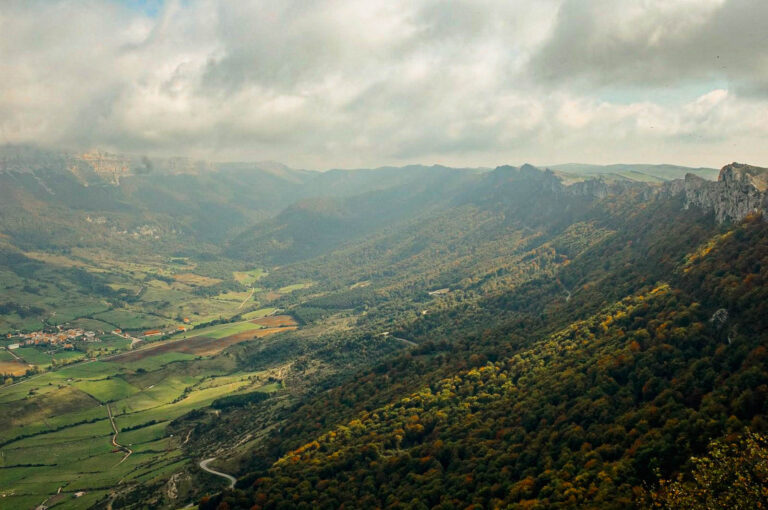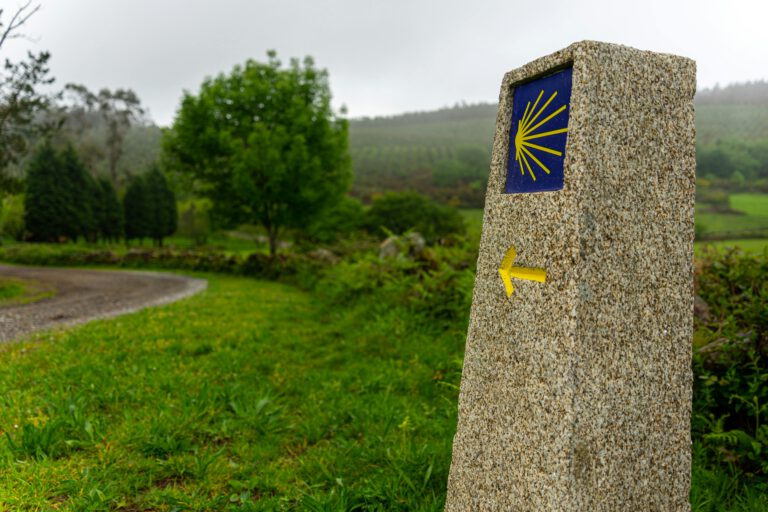Santa Criz de Eslava remains to this day the most impressively preserved Roman city in Navarre and probably in northern Spain. Occasionally, events are organised to bring back to life the splendour of the Roman era. Tours are also available for groups, but unfortunately they are only given in Spanish. Fortunately, it is possible to visit this historic site independently and free .
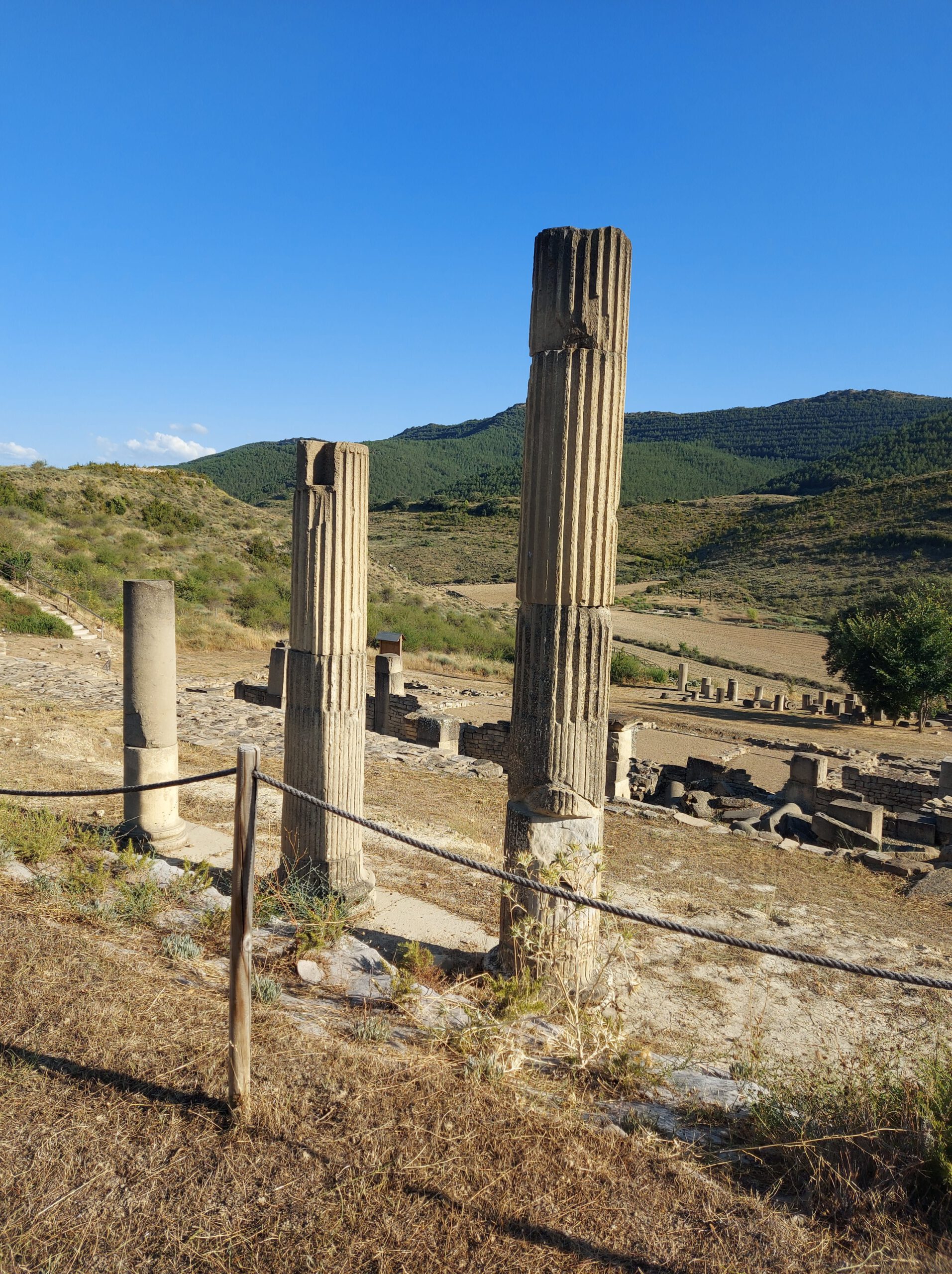
History
Around the year 195 BC, the Roman army came across a fortress located on top of a steep hill, which later became known as Santa Criz. When Emperor Augustus came to power, the city underwent a transformation in its appearance.
Forum
It was the principal public building erected at that time forum. This was a large open square built on a wide terrace on the hill. In addition, there were several other buildings that provided excellent examples of Roman public architecture in the region. The southern part of the square must have housed the basilica. This was an administrative and judicial building with two naves, decorated with pillars and capitals.
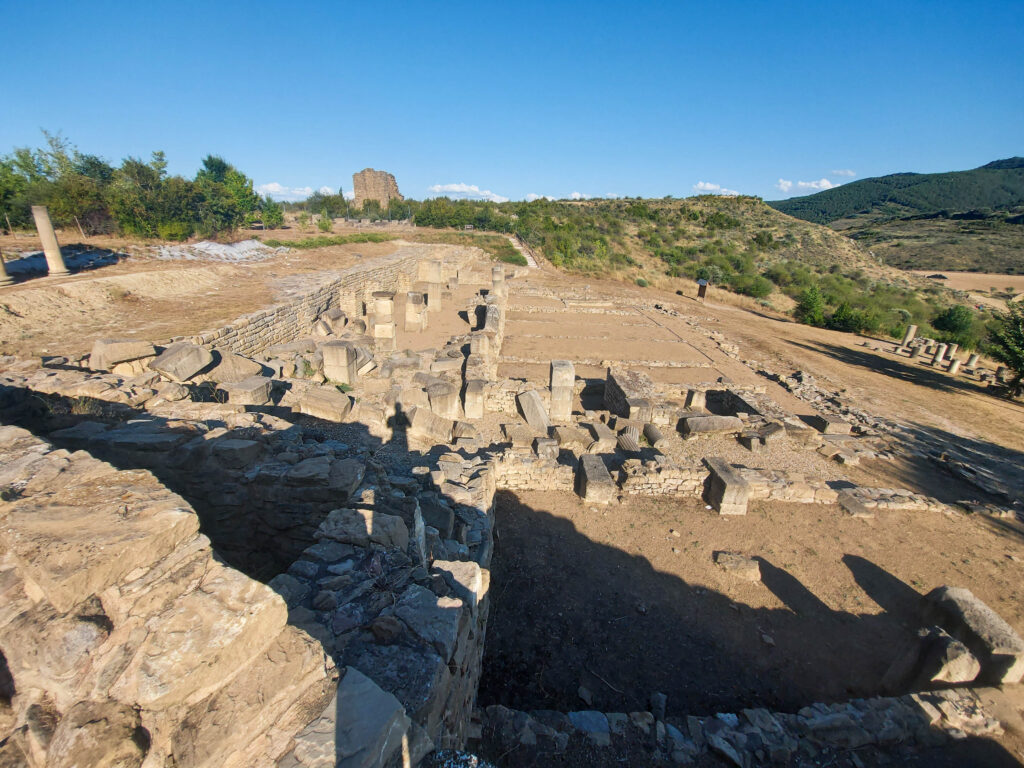
Necropolis
To the south of the city and far from the urban core lie the well-preserved remains of a necropolis, which literally means ‘city of the dead’, an extensive burial site. Members of important families from that time, such as the Calpurnii, Aemilia Vafra, or the Picula, were buried here. Offerings have been discovered within this burial site, including seeds, ceramic fragments, dice, and other everyday objects. These artifacts give us insight into the burial rituals that took place between the 1st and 4th centuries AD when this necropolis was in use.
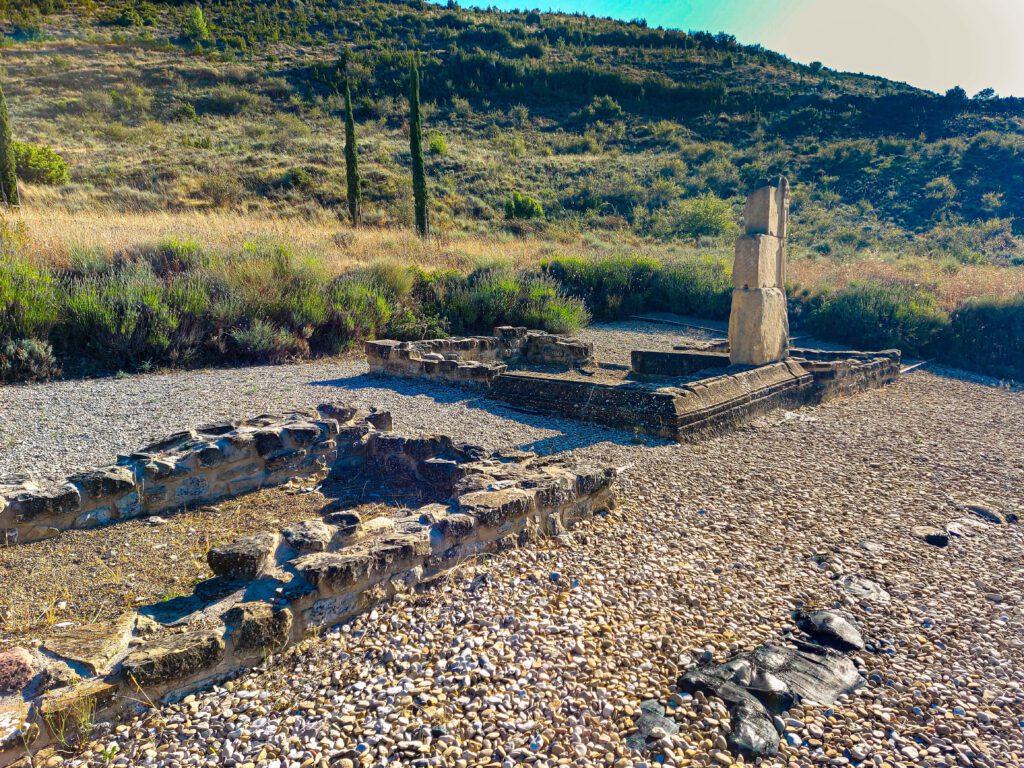
Exhibition
The village of Eslava is home to an exhibition featuring some of the most representative objects discovered during the excavations. Eslava is just an 8-minute drive from the Roman town. This exhibition can be visited on Saturdays and Sundays. To visit the exhibition, advance booking is required. In addition, there is the possibility of buying a "pack", where a tour includes both the ruins and the exhibition. For more information, click here.
Some objects from this exhibition can also be seen in it virtual museum.



